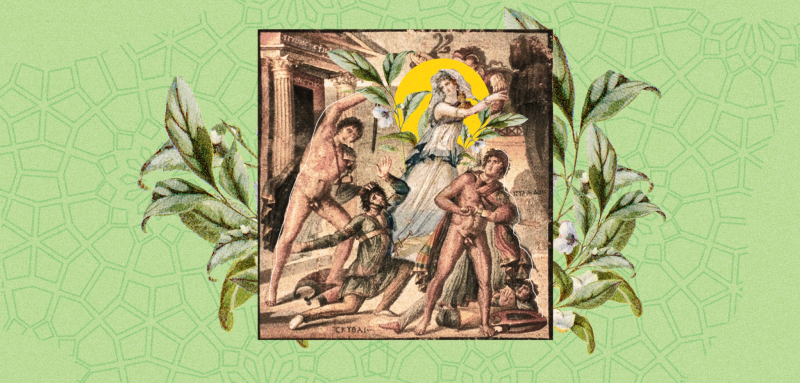Manhattan District Attorney Alvin L. Bragg has made a major announcement – the return of 12 unique archaeological artifacts, collectively valued at over nine million dollars, to the Lebanese people, represented by Ambassador Abir Taha Audi, Lebanon's Consul General in New York and the Northeastern United States. This symbolic return marks the culmination of a prolonged criminal investigation involving Georges Lotfi, an 82-year-old Lebanese pharmacist and antiquities dealer.
After years of suspicion and prosecution, an international arrest warrant has been issued against Georges Lotfi, a prolific figure in the world of antiquities. Simultaneously, a court order was also issued mandating the repatriation of these looted artifacts to Lebanon, a nation that is home to numerous archaeological treasures with a rich heritage that encompasses its role as the birthplace of Phoenician civilization and a significant part of ancient empires, including the Persian and Roman Empires.
"Cultural terrorism"
In response to this significant development, Alvin L. Bragg emphasized, "The stolen archaeological pieces had been concealed within private residences, storage facilities, and museums across the United States, even though their rightful place is in Lebanon. As we have consistently demonstrated, there is no smuggling scheme or network beyond our ability to uncover and dismantle. These artifacts, which were illicitly trafficked through Manhattan, will soon return to their native soil."
The US returns 12 archaeological artifacts to Lebanon, some of which are over two thousand years and had been found in the possession of Georges Lotfi, a Lebanese antiquities dealer who denies the allegations against him, claiming he only meant to preserve them
Special Agent-in-Charge Ivan J. Arvelo from the Federal Bureau of Investigation (FBI) in New York, described the return of the stolen artifacts to Lebanon as an "honor and privilege" as it "unites the Lebanese people with their rich heritage." He emphasized that some of these pieces date back nearly two thousand years. Arvelo underscored the FBI's unwavering commitment to collaborating with their counterparts at the Manhattan District Attorney's Office to investigate and restore historical artifacts that have long been looted from their rightful homeland.
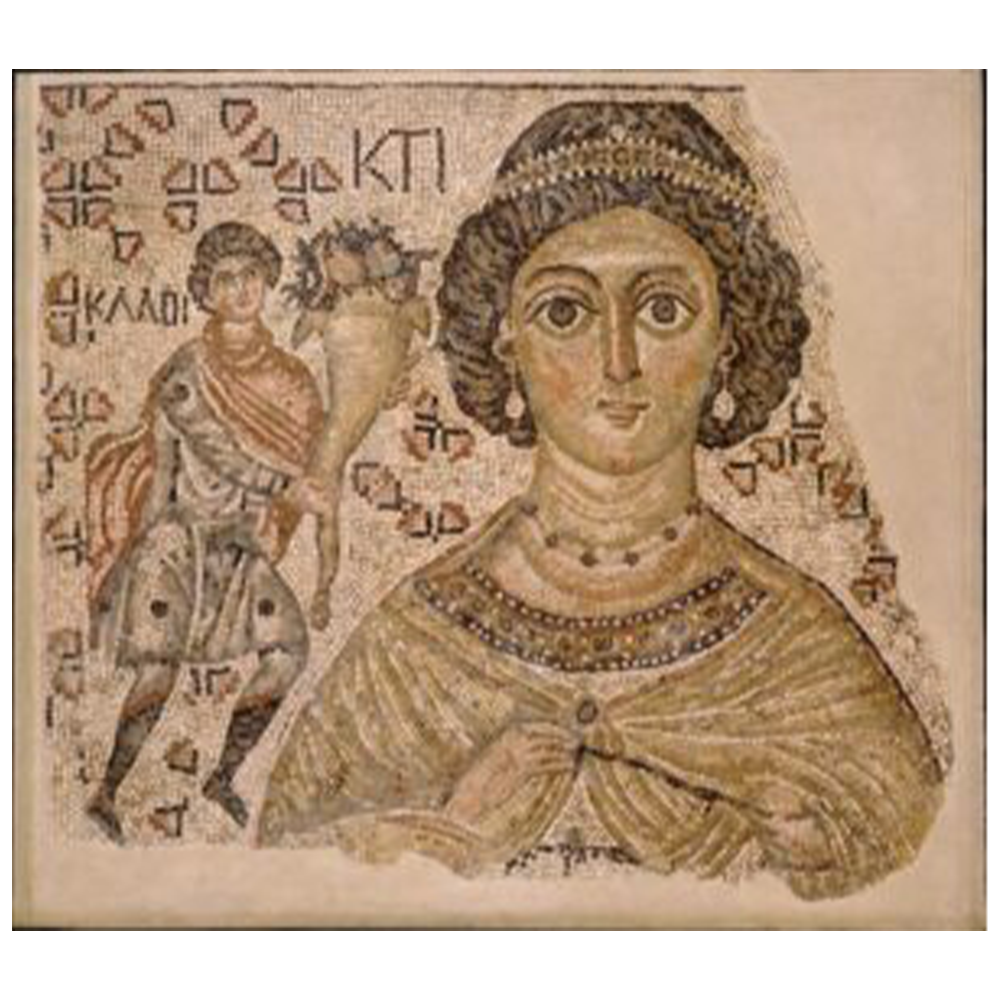 An antique piece sold by Georges Lotfi
An antique piece sold by Georges Lotfi
Ambassador Abir Audi explained that this represents "the true Lebanon, the Lebanon we wish the entire world to witness: a Lebanon of art, beauty, culture, and history; a Lebanon of peace, cultural fusion, and coexistence; an eternal Lebanon that will never die."
Audi condemned the looting of antiquities, characterizing it as "cultural terrorism." She acknowledged that while "it may not spill blood, it ruthlessly extinguishes the spirit of a people and their nation". She insisted that those who "steal their nation's treasures are, essentially, robbing the land's history, memory, and civilization". She emphatically declared, "This is a deplorable act and a cultural crime of the gravest magnitude."
Lebanon's Ministry of Culture lauded this event as a "momentous achievement" that augments its efforts to "safeguard Lebanon's rights and preserve its historical heritage."
"Looting antiquities is cultural terrorism. While it may not spill blood, it extinguishes the spirit of a people and their nation.. Those who plunder their land's heritage are robbing the land's history, memory, and civilization"—Lebanese Ambassador Abir Audi
Georges Lotfi's sins
According to documents presented in an ongoing court case in the United States, nine mosaic panels among the 12 artifacts returned to Lebanon were part of dozens of antiquities from the Middle East and North Africa that Georges Lotfi is accused of stealing, smuggling, and selling in the United States. It is noteworthy that since 2017, the African Union for Antiquities has successfully recovered 28 archaeological pieces with a combined value exceeding $33 million that were smuggled by Lotfi.
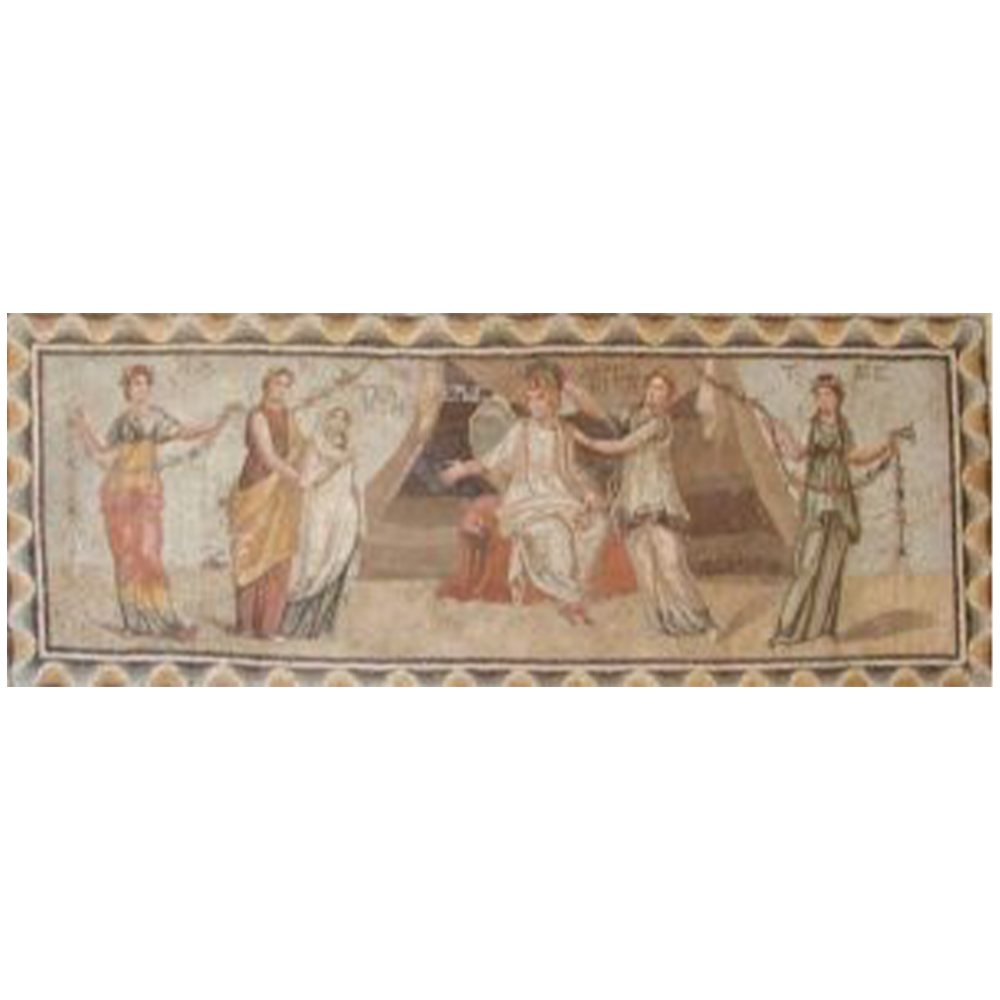 An artifact confiscated from Georges Lotfi in Manhattan
An artifact confiscated from Georges Lotfi in Manhattan
In August 2022, the US district attorney's Antiquities Trafficking Unit (ATU), issued an arrest warrant for Georges Lotfi on 24 charges related to "criminal possession of stolen antiquities" and "planning to sell, gift, or loan these artifacts and others to American museums for personal gain." These charges revolve "23 ancient mosaics from Syria and Lebanon, as well as a massive limestone sculpture from Palmyra, Syria, of a man, his wife, and their children." Following this, a request was made for an Interpol Red Notice for his arrest, which was duly issued in June 2023.
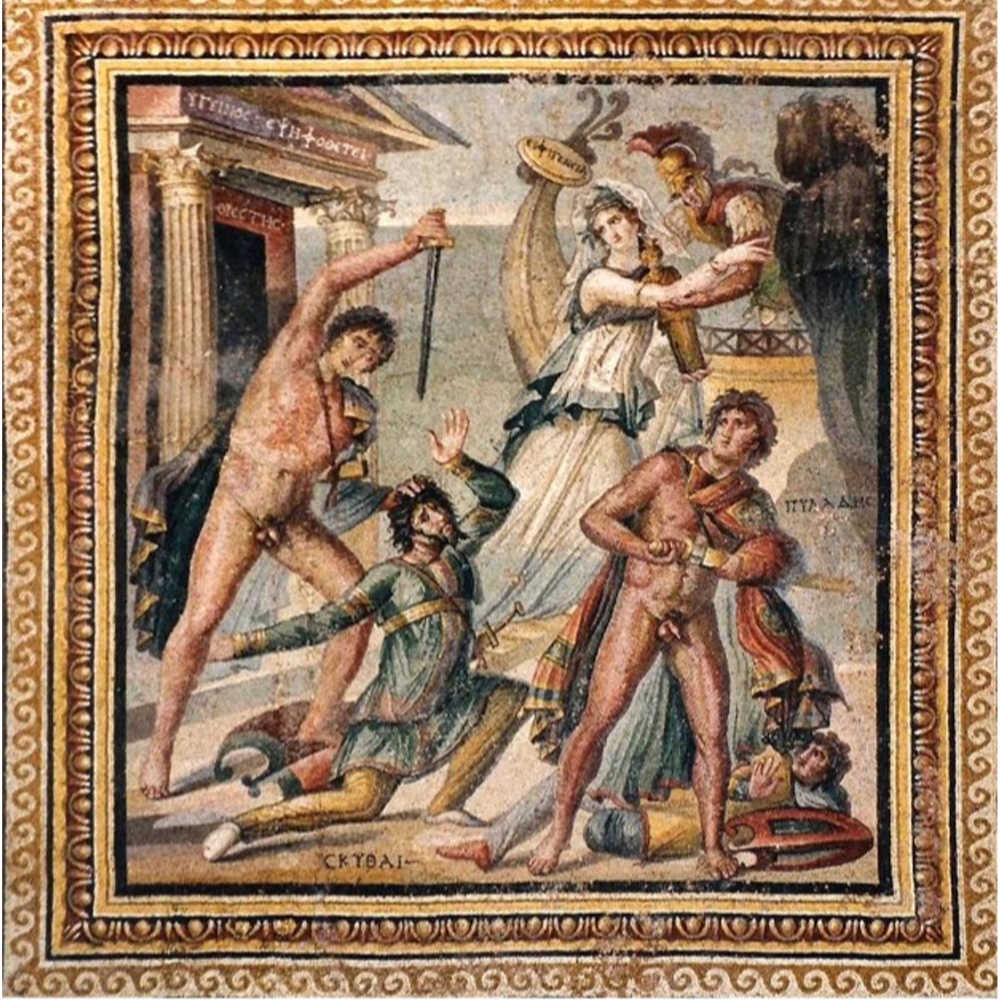 An archaeological painting from Syria confiscated from Georges Lotfi
An archaeological painting from Syria confiscated from Georges Lotfi
Lotfi has vehemently denied these allegations, stating in a public message, "My mistake was trusting untrustworthy individuals," referring to American antiquities law enforcement officers. In an online statement, he further asserted that "my antiquities were legally acquired under Lebanese law and had been openly declared to Lebanese customs upon export and to U.S. customs upon import". He insisted that his intention had been to "safeguard Lebanese antiquities during the civil war" and characterized the recent seizures as "retaliatory" actions against his efforts to repatriate artifacts from the United States to Lebanon.
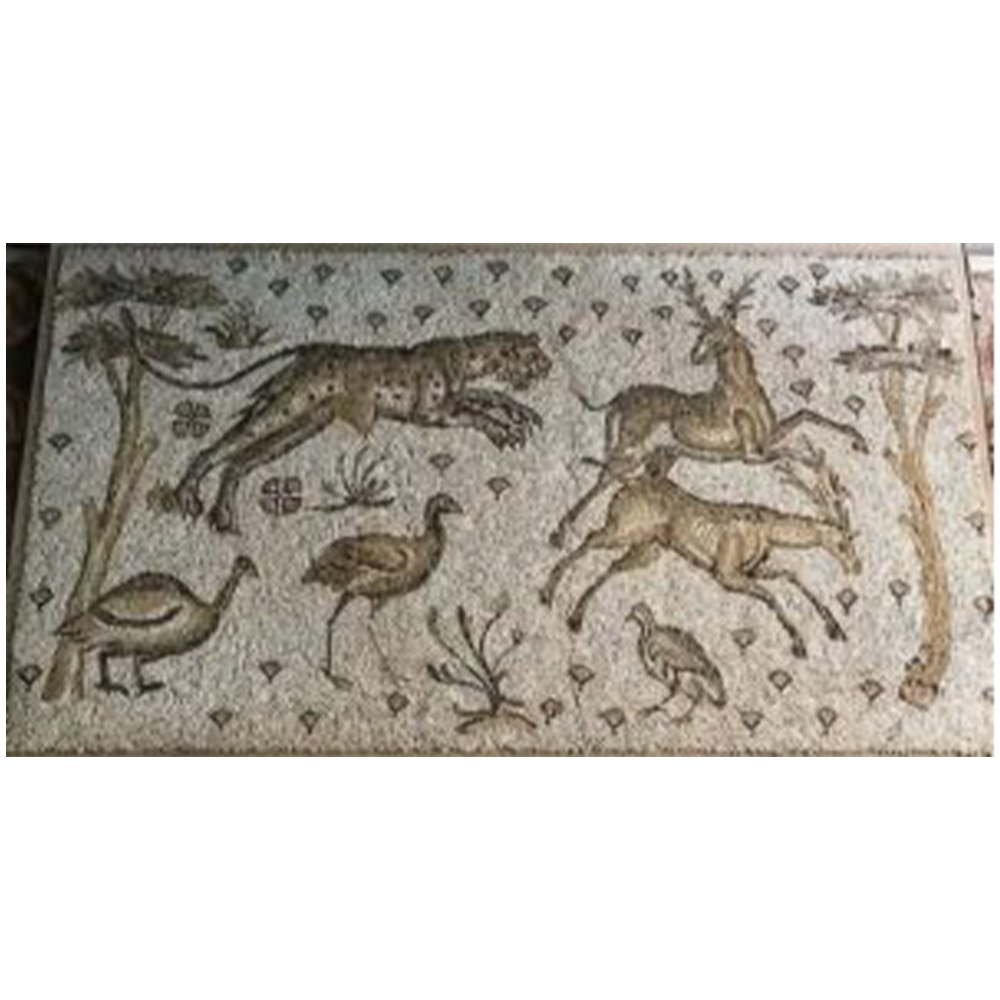 One of the looted pieces found on Georges Lotfi's property
One of the looted pieces found on Georges Lotfi's property
However, mounting evidence indicates that the retired Lebanese pharmacist, residing in Paris and owning an apartment filled with artifacts in Lebanon, has a concealed trove of smuggled Middle Eastern antiquities in Dubai. Remarkably, Lotfi himself served as a key informant for authorities combating antiquities trafficking in New York for an extended period. He reported on some of the most prominent operations and methods of smuggling and looting antiquities around the world, including the Golden Egyptian sarcophagus in the Metropolitan Museum. US officials believe he did so to conceal his own illicit dealings.
Lotfi himself served as a key informant in combating antiquities trafficking in New York, and reported on some of the most prominent operations and methods of smuggling artefacts worldwide. US officials believe he did so to conceal his own illicit dealings
The remaining three pieces (out of the 12 recently returned to Lebanon) are alleged to have been smuggled to New York by other prominent traffickers: Giovanni Franco Piscina, Robin Symes, and Jerome Eisenberg. The African Union for Antiquities had seized 16 antiquities trafficked by Symes' company in March 2023.
The 12 pieces recently returned to Lebanon include nine mosaics depicting gods, gladiators, and mythical beasts, and are as follows (with the first nine being the ones found in Georges Lotfi's possession):
- A mosaic depicting the Earth Goddess Gaia, tracing its origins back to the 5th century BC.
- A mosaic of the Autumn season, hailing from the 5th century BC.
- A mosaic representing the Summer season, dating back to the 5th century BC.
- A mosaic portraying the divine couple Neptune and his wife Amphitrite, riding a chariot, crafted during the 3rd century BC.
- A mosaic of a giant from the 5th century BC.
- A mosaic showcasing the athlete Dionysus, meticulously composed of hundreds of tiny, multicolored stone fragments, dating back to the 3rd century BC.
- A mosaic illustrating King Lycurgus of Thrace in the act of vanquishing Ambrosia, from the 5th century BC.
- A mosaic of Dionysus as a child riding a lion, accompanied by his companions, originating from the 3rd century BC.
- Another mosaic featuring Dionysus, this time alongside his mentor, from the 5th century BC.
- A small white marble statue portraying the Greek mythological twin Castor mounted on a horse, dating back to a period between 400 and 500 AD.
- A small white marble statue portraying the Greek mythological twin Pollux, on his steed, thought to be crafted between 400 and 500 AD.
- A bronze statuette of a Roman athlete in the nude, making an offering dated to the first century A.D
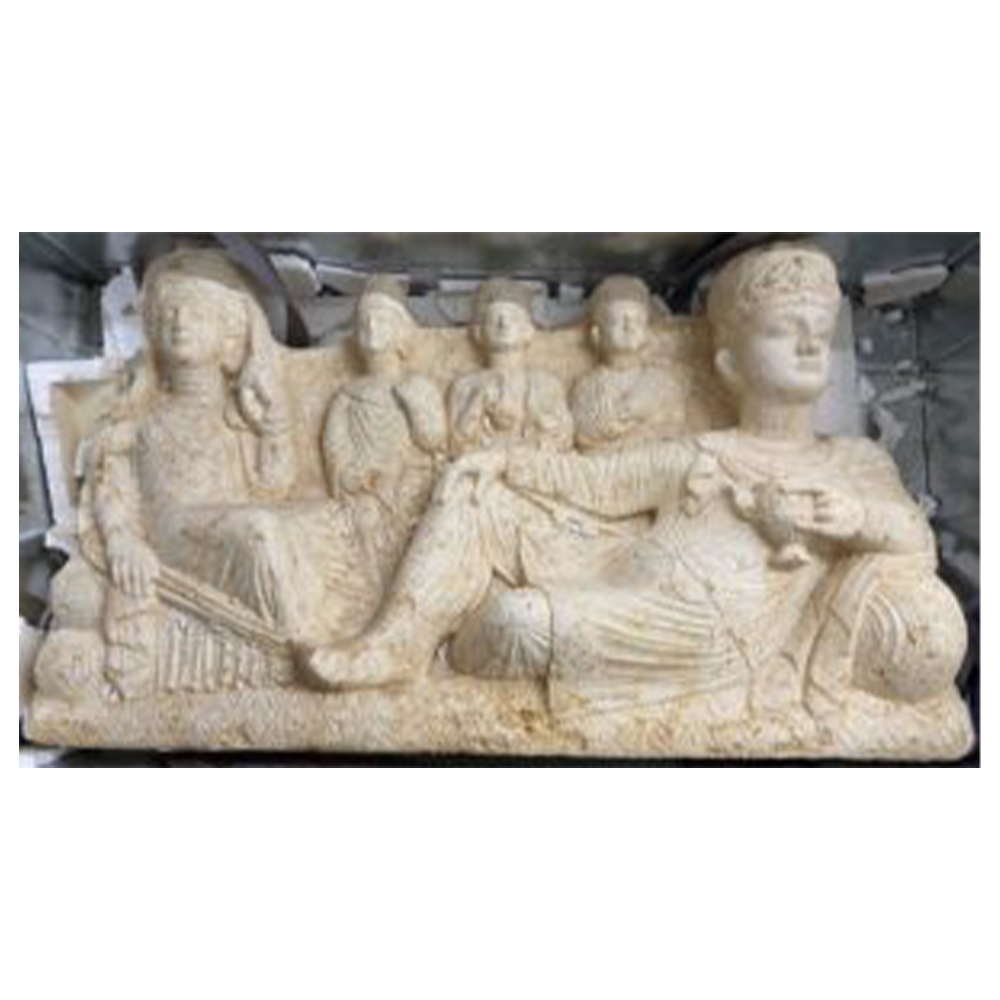 An artifact confiscated from Georges Lotfi in Manhattan
An artifact confiscated from Georges Lotfi in Manhattan
Previous collaboration
This is not the first time that the United States has collaborated with Lebanon in the restoration of stolen cultural heritage. In 2018, Lebanon successfully reclaimed a unique artifact: a 2,400-year-old marble sculpture of a bull's head that had been looted during the Lebanese Civil War and transported to the United States. At that time, Lebanon's Ministry of Culture announced its intention to exhibit this bull's head, along with two other pieces also recovered from the United States, at the National Museum in Beirut.
The Lebanese news agency reported at the time that these artifacts included a bull's head made of marble, a marble bust of a man's body, and an almost complete statue of a man. Lebanon's Ministry of Culture noted that the recovery of these artifacts followed a "lengthy legal battle, and extensive security and investigative efforts."
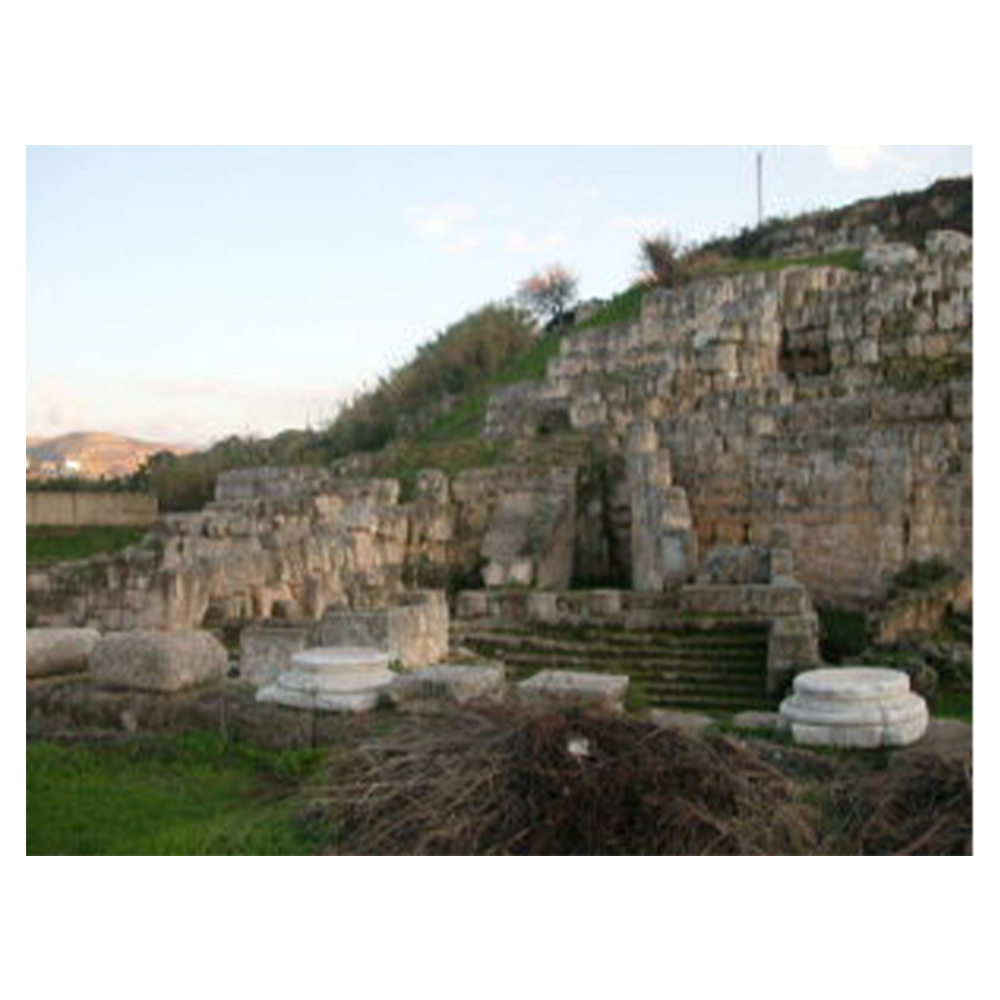 Temple of Eshmun site in Lebanon
Temple of Eshmun site in Lebanon
These pieces, dating back to the 4th and 6th centuries BC, were originally unearthed during the 1960s and 1970s at the Temple of Eshmun in the port city of Sidon in southern Lebanon.
Raseef22 is a not for profit entity. Our focus is on quality journalism. Every contribution to the NasRaseef membership goes directly towards journalism production. We stand independent, not accepting corporate sponsorships, sponsored content or political funding.
Support our mission to keep Raseef22 available to all readers by clicking here!
Interested in writing with us? Check our pitch process here!
